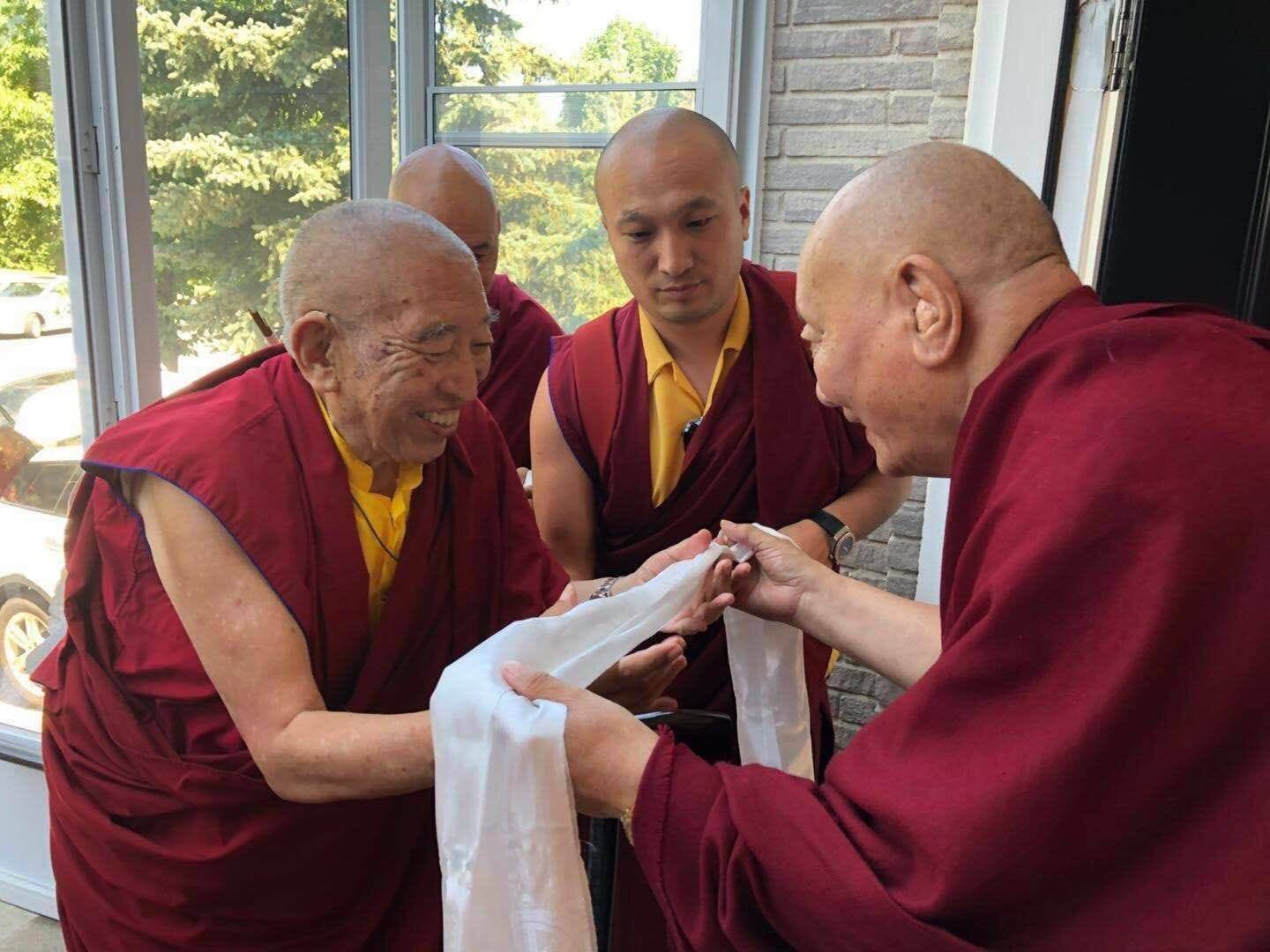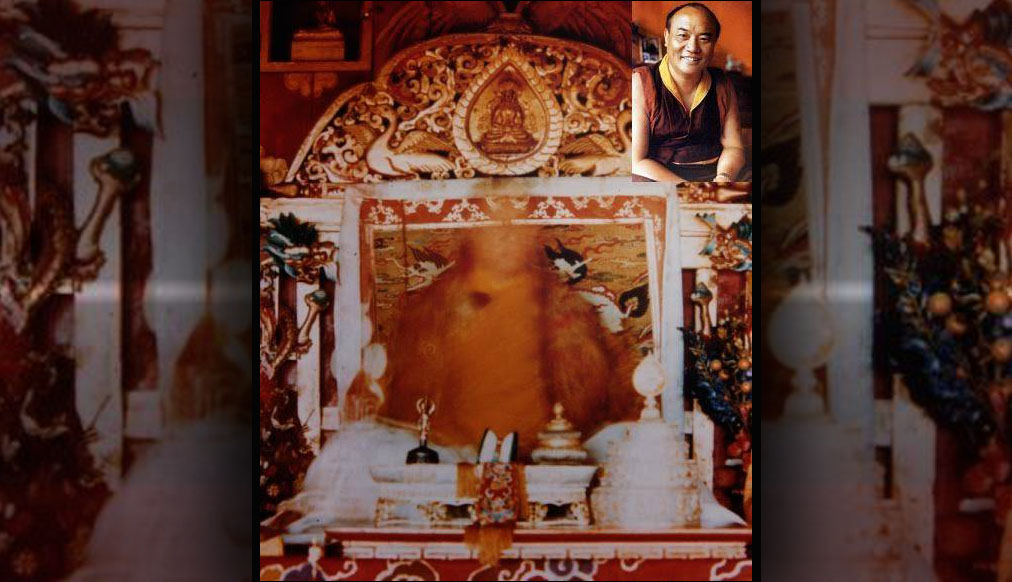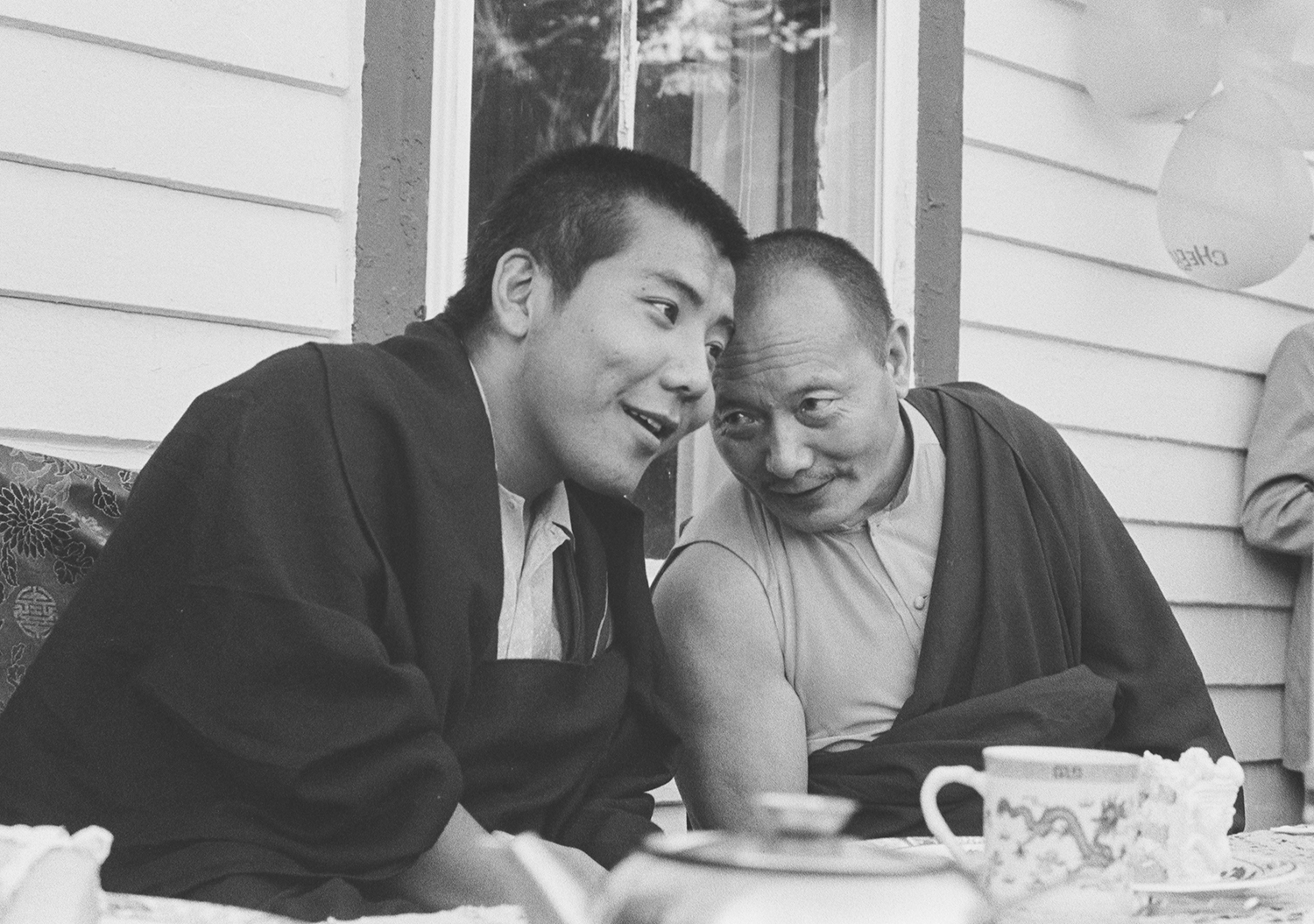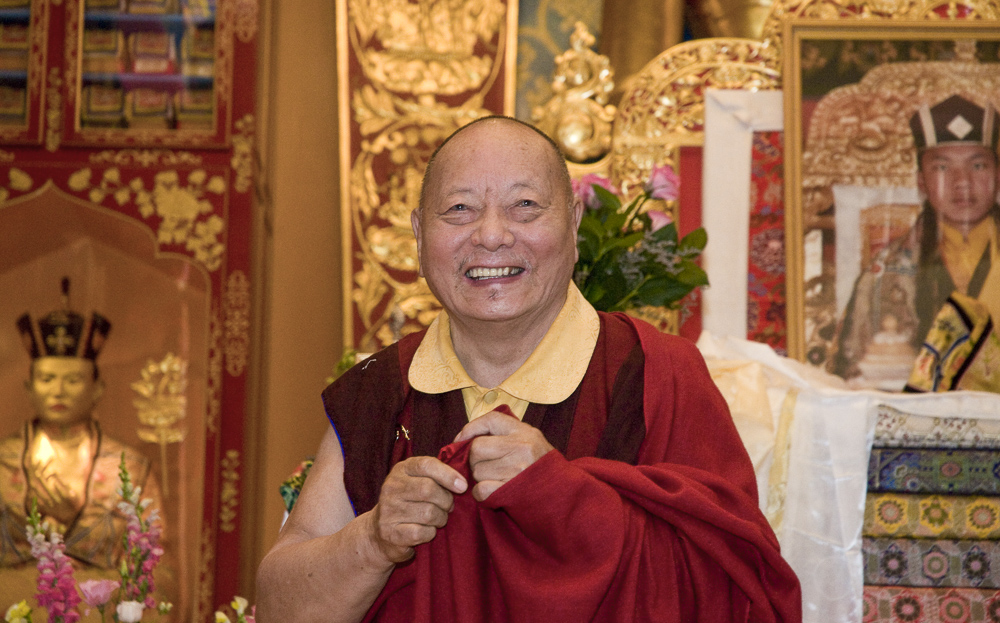Michael Erlewine
The Beginning of the End
The power of Khenpo Rinpoche’s words cannot be overestimated; even now, they are a bright shining light that cuts through the darkness of ignorance. Here’s an exchange with a dharma student where he speaks of the way we need to work with our emotions through Mahamudra …
Here are yet more words of my dharma teacher of 36 years (the Ven. Khenpo Karthar Rinpoche) that I find very useful. This time talking with a student.
Student: When realized beings describe it that way to confused beings to benefit them, are they stepping out of that state in order to describe it?
Rinpoche: It is not that they step out of it. These labels are imperfect—the use of terms like bliss and lucidity is a concession to our ignorance. They are using terminology that we can relate to, but it is not exact.
Student: My other question is about my practice, which I think is still quite conceptual and I would like some help in moving further. I will describe it at its best. It is not like that all the time or most of the time. My experience when my mind is very stable is that I experience thoughts, kleshas (affictions), and even physical appearances, as a shift of attention. Then when I look at a thought—it is not that I think it was something and it turns to nothing—but still there is an experience of it dissolving into emptiness—of fixation letting go and relaxing as space. It is not like it is seen directly. It is more like it lets go. I have had the experience on the cushion of seeing a klesha let go like that—to have no more imprint, but it is like a three-step process. It is not direct. It does not particularly happen with strong kleshas off the cushion.
Rinpoche: What that means is that you are starting to grasp the way to look at thoughts or kleshas, but you are not yet used enough to doing it to reverse the habit of being overpowered by kleshas. The solution to this problem is simply to continue, and as you become more and more used to looking at the nature of thoughts and kleshas you will gradually be able to liberate in this way the more intense kleshas.
We should not expect in the beginning to be able to cause the self-liberation of any klesha. When someone can in a state of great or sudden fear look at the fear and immediately experience a state of blissful lucidity, that indicates that they are very well trained. Not only have they understood the pointing out, but they have also applied it and gained facility with it. Therefore, you simply have to continue. A distinction needs to be made between the recognition of mind’s nature and the attainment of buddhahood. Someone who has recognized the nature of their mind has not by any means attained buddhahood by doing so, but they have attained a recognition that they can use through gradual familiarization to eventually achieve buddhahood. If someone has not recognized their mind’s nature, the best thing they can do is to engage in conventional imperfect virtue—means of gathering the accumulations, and so on. If you have not recognized your mind’s nature, there is no point in pretending that you have and trying to practice in a way that would be appropriate for people who have. It would be kind of like banging your head against a wall. However, if you have recognized it, then that is the beginning of the training. It is not the end of it.
“As Bodhicitta is so precious,
May those without it now create it,
May those who have it not destroy it,
And may it ever grow and flourish.”
Photo below by my wife Margaret of a Thai standing Buddha that is in the main shrine room at our dharma center.




